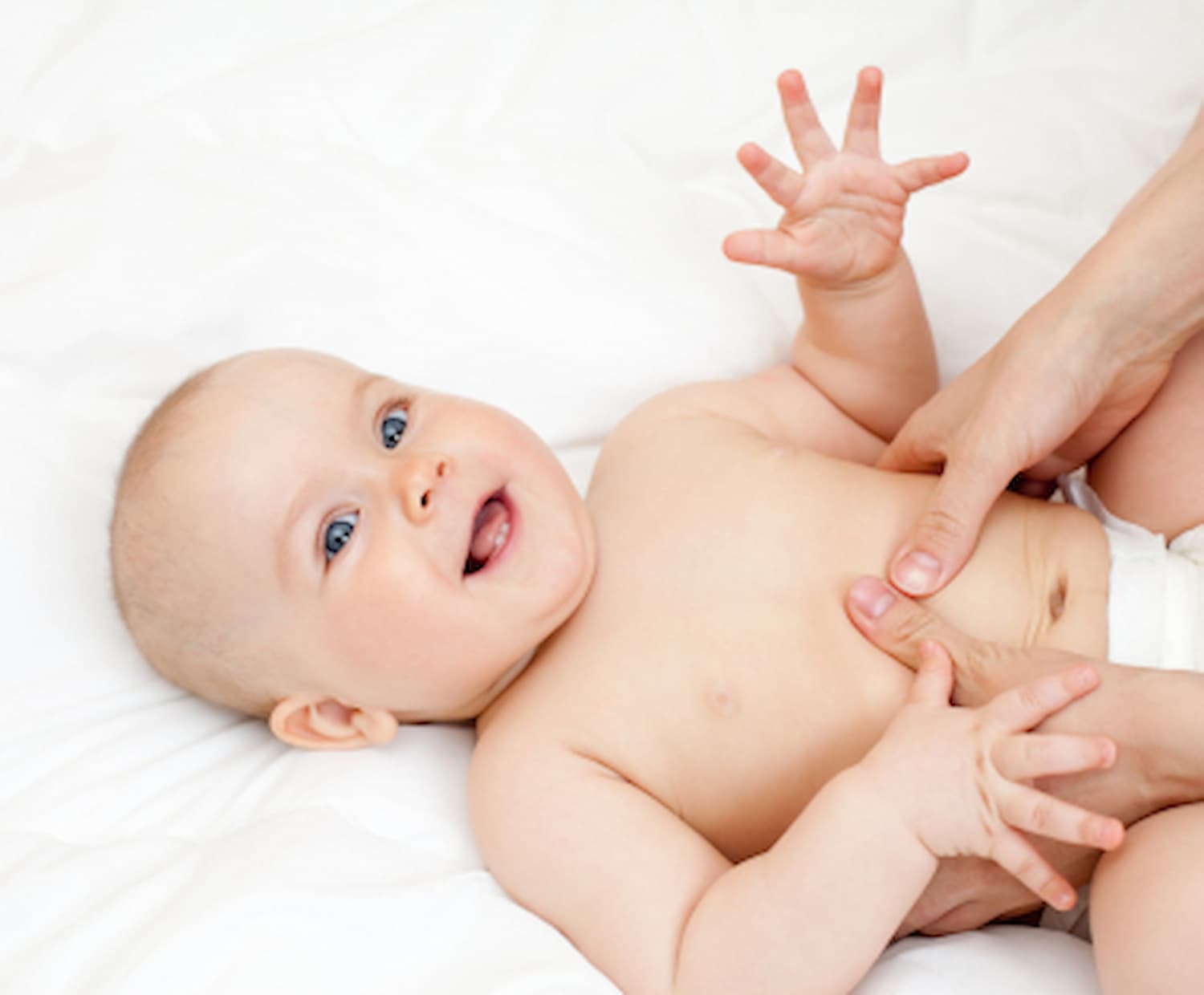
Infant massage was introduced to the Western world in the 1970s by Vimala McClure, who spent many years working in Indian orphanages. After using the Indian infant massage techniques with her own babies, Vimala McClure published “Infant Massage: A Guide for Loving Parents”.
McClure’s other significant contribution was to establish the International Association of Infant Massage (IAIM). This is now a global organisation with chapters in over 35 countries, including Australia, which gives some indication of its popularity and effectiveness.
Infant massage therapists are instructors who run baby massage classes that teach the parent or caregiver how to massage newborn babies. Infant massage is not an “activity” program but a parent support service – similar to attending a childbirth or breastfeeding education class or a new parent's group.
The underpinning purpose of infant massage is to support parents in the use of gentle touch and other forms of communication to enhance their understanding of their baby’s cues (body language, etc) and behaviour states, to connect with their baby, and to build their confidence and trust in their own parenting abilities. For this reason, unless for treatment of a specific medical condition, it is important that parents (or other primary caregivers) are the only people to massage the baby.
What is Infant Massage?
Infant massage is a form of massage therapy that helps keep a baby warm, promotes social development through human touch, and addresses common baby ailments. It involves gentle strokes, taking a baby's sensitive skin into consideration at all times. It is usually done with baby massage oils, preferably those rich in fatty acids like olive oil, to protect the skin barrier function of the baby's skin.
What are the Health Benefits of Baby Massage?
Newborns are unable to communicate in the same way that adults do; instead, they rely on human touch to feel and give love. What better way to show your love and affection for your baby than with a gentle massage? It has been shown that gently stroking and rubbing an infant's body while giving them a soothing full-body massage can relieve common problems such as constipation, gas and colic. In one study, researchers found that regular massage of premature babies with low birth weight resulted in weight gain.
A pediatric massage consultant claims that the benefits of baby massage extend beyond physical comfort. It can also help promote bonding between parents and infants, which is why it is important to maintain eye contact with your little one during a massage session. Infant massage is typically recommended for infants aged 0 to 12 months old.
There is now a substantial amount of research that has been conducted into the benefits of infant massage. Most of this research has looked at the IAIM infant massage program, and has found that learning infant massage by attending baby massage classes helps parents contribute to the healthy development of their babies in the following ways:
- Promote sounder and longer sleep
- Promote healthy weight gain
- Promote brain development
- Promote their baby’s social skills (such as compassion, cooperation, confidence, etc)
- Promoting bonding and attachment (verbal and non-verbal communication is developed)
- Promote development of bones
- Improving the baby's immune system
- Helping the infant learn to relax
- Regulate digestive, respiratory and circulatory systems
- Relieve pain and discomfort from gas and colic, congestion and teething
- Help the production of endorphins, which relieves stress
- Manage peeling, dry skin
Source: lifethrumyeyes
The benefits for parents are also apparent, as a special focused time allocated for massage can deepen bonding. Research in the UK found that mothers who learned the IAIM infant massage program recovered more rapidly from postpartum depression than mothers who received conventional forms of treatment (counselling, medication, mother’s groups, etc). Research using the IAIM infant massage program has also been found to be beneficial where there are some additional needs – such as disability or medical conditions, young parents, social isolation, or difficulties in attachment and bonding.
Most Certified Infant Massage Instructors are nurses, midwives, massage therapists, GPs or occupational therapists who have many years experience working with families, and who have undertaken specialist, post-graduate training with the IAIM in teaching infant massage to parents. Parents should be cautious about learning infant massage from people who are not certified as they will not have the required training or authorisation to deliver the IAIM Infant Massage Program.
Information supplied by the International Association of Infant Massage (Australia).
Originally published on Jun 21, 2010








